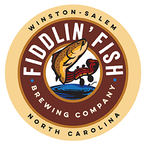CHAPTER EVENTS

Fiddlin' Fish Social
August 14, 2022, 4-7pm
Come join us on Sunday August 14th for a social at the Fiddlin Fish Brewery on Trade street from 4-7pm. Please bring your spouse, family, friends and meet other members. Enjoy the afternoon telling friends about the many adventures you have had this summer, specially the one that got away. There will be a food truck and possibly a band. The best part is that Fiddlin Fish will donate 20 percent of proceeds from any draft beer sold during that time period back to our chapter. So socialize, have a drink while benefiting our conservation efforts.
August 14, 2022, 4-7pm
Come join us on Sunday August 14th for a social at the Fiddlin Fish Brewery on Trade street from 4-7pm. Please bring your spouse, family, friends and meet other members. Enjoy the afternoon telling friends about the many adventures you have had this summer, specially the one that got away. There will be a food truck and possibly a band. The best part is that Fiddlin Fish will donate 20 percent of proceeds from any draft beer sold during that time period back to our chapter. So socialize, have a drink while benefiting our conservation efforts.